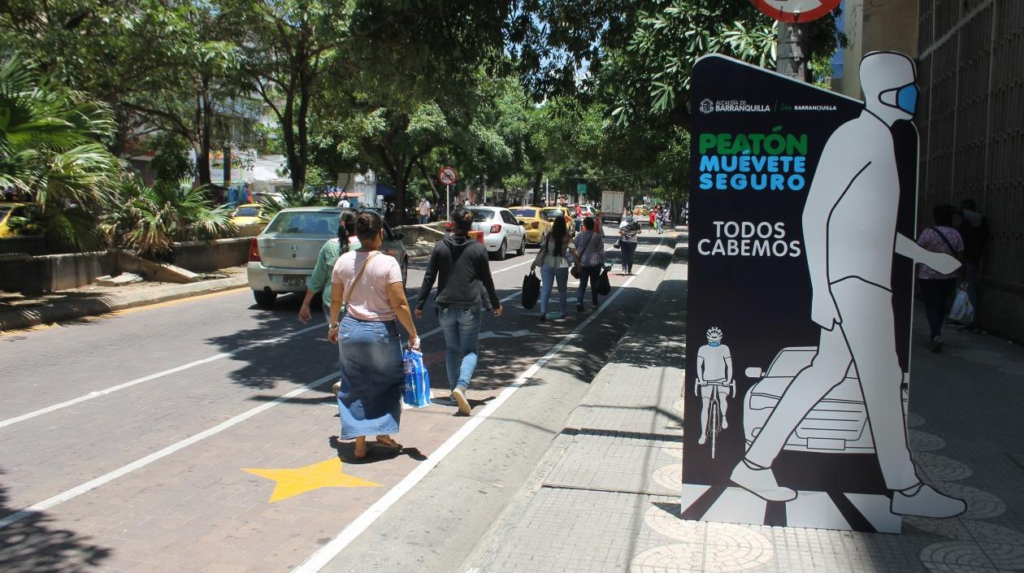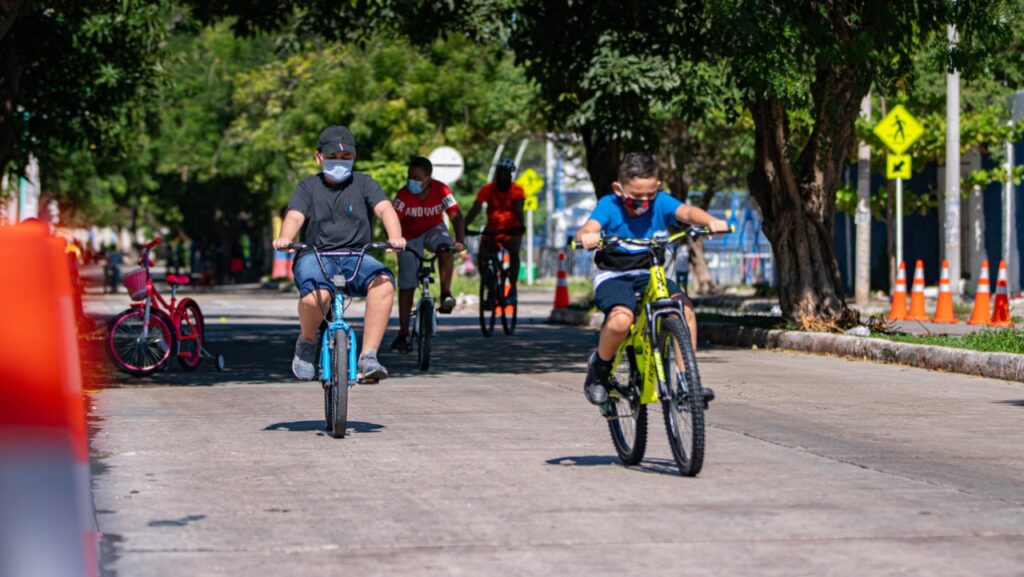The city of Barranquilla, Colombia, has experienced in recent years a large population growth, proving in turn the rapid growth of the vehicle fleet with more than 150,000 vehicles, and about 230,000, leaving as a consequence mobility and pollution problems.
Faced with this panorama, the region’s authorities have implemented a series of initiatives that have gradually led to significant progress in achieving sustainable mobility. In this regard, the Secretariat of Transit, the Metropolitan Area and Transmetro presented their accountability 2021.
Within the framework of the District Development Plan 2020 – 2023 “I am Barranquilla”, which has as one of its objectives to improve traffic management and road safety, 33 micro-interventions were implemented with which improved channeling, organization of vehicular flow and reduced the risk of accidents.
The expansion of infrastructure for cyclists is another of the main goals of the city authorities, which is why 15.17 kilometers of new bicycle lanes were implemented, reaching 28.65 kilometers in the last two years. These spaces, in addition to improving the safety of cyclists, seek to reduce conflict with pedestrians and have a more efficient connectivity.
Likewise, more than 79,000 linear meters and 29,000 square meters were horizontally demarcated, making the circulation of road actors safer and more efficient. More than 1,300 vertical signs were also installed and 14,000 more were maintained in neighborhoods, school zones and main roads.

Progress on Public Transportation
In the midst of their accountability, Barranquilla authorities detailed the innovations made in transportation. They reported that progress was made towards the consolidation and implementation of the Collection, Control and Communications System, RCC, (SIBUS), an intelligent software that has had as a preamble the installation process of the first 2,700 dual equipment that will enable electronic payment in public transport, to the 700,000 users who move in the metropolitan territory.
The RCC will allow the elimination of cash from the 3,060 urban buses operating in the metropolitan area of Barranquilla, but in turn will improve the safety of the driver and citizens because the arrival and departure of passengers will be established in real time, having a control of the operational variables of each company authorized by the AMB to provide the service.
Education and Information
In addition to the measures implemented for the development of sustainable mobility, the Secretariat of Transit also offered workshops and inductions to educate the population on the importance of having a friendly and responsible movement within the city.
The authorities promoted the formation of exemplary road actors. The Road Safety Education team was able to sensitize 13,142 people about safe behavior on the road. In addition, 68 educational institutions were intervened with demarcation of their school zones.
In total, 166,678 citizens were made aware of road safety education and culture, including drivers of public and private vehicles, cyclists, motorcyclists and the number one actor, the pedestrian, with talks to promote the formation of safe habits, behaviors and conduct on the road. These actions are aimed at promoting decision-making to prevent accidents and avoid risky situations when traveling in the city.




